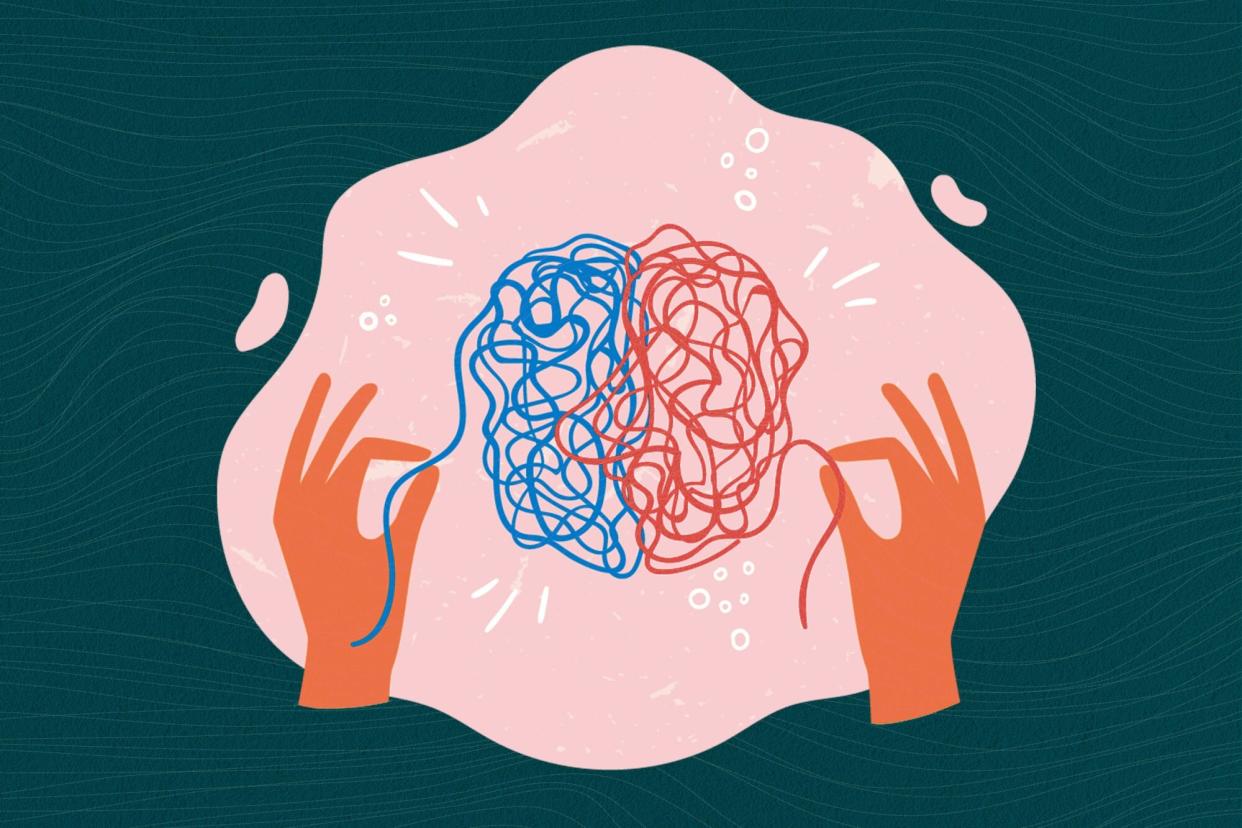These 8 Things Could Age Your Brain by 3 Years, According to New Research

Getty Images
Certain aspects of our risk for dementia are genetic. But each year, we're discovering more about little lifestyle factors that can make a big difference in our cognitive sharpness throughout the lifespan.
Alzheimer's disease (the most common form of dementia) is already one of the top 10 causes of death in America, per the Centers for Disease Control and Prevention. Plus, rates of Alzheimer's disease are expected to triple between 2020 and 2060, so these discoveries have potential to make a massive impact in the health of humans.
In March 2021, we learned that these 13 things (including high blood sugar and social isolation) could make you more likely to get Alzheimer's. But how much does each of those factors matter? Figuring that out was the goal of the scientists behind a new study published in the July 2022 Alzheimer's Association journal Alzheimer's & Dementia: Diagnosis, Assessment & Disease Monitoring. After analyzing data from thousands of people, they found that certain lifestyle factors can reduce dementia risk by 40%.
What This Brain Health Study Found
This study is one of the first—and is reportedly the largest—to look at lifestyle risk factors for dementia across the lifespan, the scientists involved say.
To land on this finding, a research team in Toronto tapped 22,117 people aged 18 to 89 to answer their 20-minute brain health assessment (which you, too, can take!). The test involves four cognitive tasks designed to measure memory and attention. After comparing the results with some common modifiable risk factors for dementia, they found that participants who had any of these eight common lifestyle factors essentially added three years of aging to their brains:
Hypertension
Smoking (currently or in the past four years)
Diabetes
Depression
Alcohol or substance abuse
Hearing loss
An education level less than a high school diploma
Traumatic brain injury
Each additional risk factor led to a decrease in cognitive performance by as much as three years of aging, they confirm, and each seemed to lead to a relatively similar amount of decline. That means that an individual with high blood pressure, type 2 diabetes and depression, for example, would have a brain that's about nine years "older" than that of a peer without those diagnoses.
"Our results suggest lifestyle factors may be more important than age in determining someone's level of cognitive functioning. This is great news, since there's a lot you can do to modify these factors, such as managing diabetes, addressing hearing loss and getting the support you need to quit smoking," study lead author Annalise LaPlume, Ph.D., a postdoctoral fellow at Baycrest's Rotman Research Institute tells Baycrest News.
Related: The #1 Tip for Keeping Your Brain Sharp As You Age, According to Neurosurgeon Sanjay Gupta
Most earlier research in this field looked only at seniors and middle-aged adults, but this study included results from people as young as 18. And as a result, the scientists were able to determine that each of these risk factors can have a detrimental impact on cognitive performance at any age—even well before any diagnosable signs or symptoms of cognitive decline or Alzheimer's disease.
In the future, these researchers hope to study "super agers," or individuals who have cognitive performance the same as others several decades their junior, to see what qualities might make our brains "younger."
The Bottom Line
It's never too early—or too late—to start taking steps to bolster your brain health. This study proves that these steps can make a large impact in your dementia risk:
Keep your brain engaged and your hearing tuned in.
Stop smoking (if you do).
Seek treatment for any depression or alcohol or substance abuse.
Try to keep blood pressure and blood sugar in check.
"Our research shows that you have the power to decrease your risk of cognitive decline and dementia. Start addressing any risk factors you have now, whether you're 18 or 90, and you'll support your brain health to help yourself age fearlessly," LaPlume concludes in Baycrest News.

